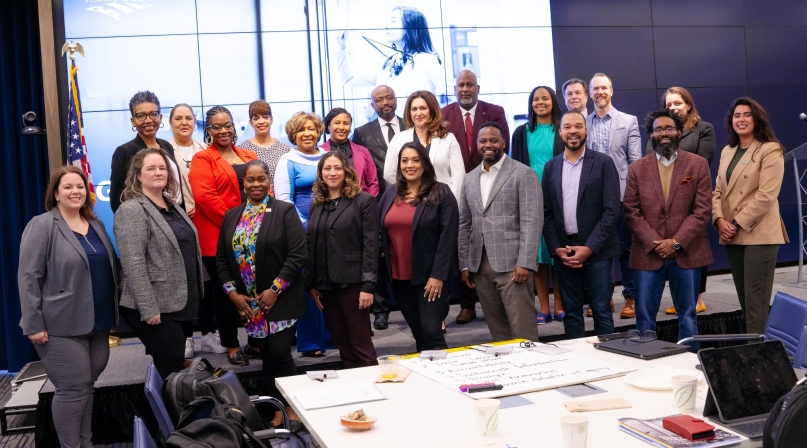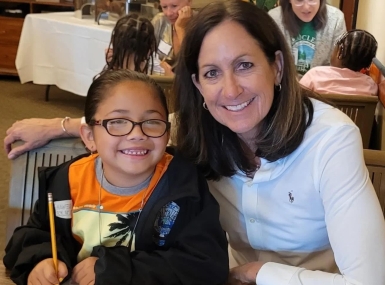Equity task force shares preliminary ideas for report

Key Takeaways
Nearly four years ago, many counties passed resolutions declaring racism as a public health issue in response to unrest and racial reckoning following the murder of George Floyd. Some counties then created equity offices and diversity, equity and inclusion (DEI) positions, but without a clear plan on where to go from there.
Where would these offices sit within county government? What kind of data should we collect? What does DEI mean in our county? How will we fund staff for these positions? How can we best engage both community members and county leaders?
Despite the lack of clear guidance, many of these positions and offices prevailed, achieving consensus where it once seemed impossible, driving inclusive policies that were previously unattainable and helping people from all communities to thrive. Still, these positions and offices were (and are) under constant threat from internal and external factors from funding to staffing to political will, and some have already been dismantled.
In October 2023, NACo launched its Equity + Governance Task Force with members from counties across the country who play pivotal roles in building inclusive policies in their communities. At the direction of NACo President Mary Jo McGuire, the task force is working to identify, prioritize and develop tools and resources counties need to advance equity in our communities.
“Equity in governance is not just a moral imperative but the cornerstone of a thriving community, ensuring that every voice is heard, every need is addressed, and every opportunity is accessible,” said co-chair Sarah Lopez, a Sedgwick County, Kan. commissioner.
The task force met in March at NACo headquarters in Washington, D.C. to identify common pain points across diverse counties and start to spell out recommendations for NACo.
Several themes quickly emerged from the conversations held throughout the day. To govern equitably, counties need committed leadership at all levels of government, a sustainable infrastructure, funding, dedicated equity staff positioned in the right part of county government, community engagement and civic participation, data and a roadmap to get there.
Counties also need strategies to talk about equity work in a compelling way that not only communicates the harms to historically marginalized communities but offers real and proven solutions to fix them.
“Equity is not just a buzzword, it’s the cornerstone of just and effective governance,” said Andrew Strong, director of the Office of Equity and Racial Justice in San Diego County, Calif. and task force co-chair.
“Without equity, there can be no true representation, no fair distribution of resources, and no meaningful progress. The NACo Equity + Governance Task Force recognizes this imperative, paving the way for inclusive policies and practices that uplift every community, ensuring that no one is left behind.”
Task force members shared preliminary ideas for how NACo can support county officials and equity staff from sharing best practices to facilitating peer engagement to developing a framework for counties just starting out and common language.
The task force will culminate this fall with a report to NACo on ways it can support county efforts to advance inclusive policies and practices for all county residents.
Related News

Celebrate Procurement Month by honoring county procurement professionals
As we celebrate Procurement Month, we honor the unsung heroes of public service — procurement professionals — who ensure counties have the resources they need to serve their communities.

County reading program prevents ‘summer slide'
Dive into Reading grew by seven times in its first six years, with the Manatee County, Fla. library system working with the school district to bus students to the reading sessions.

DOJ issues final rule for state and local governments to implement web-based accessibility standards
On April 8, the U.S. Department of Justice (DOJ) announced the release of a web accessibility final rule for state and local governments.
Featured Initiative
Center for Equitable Governance
Counties play a critical role in building vibrant communities for all individuals.

